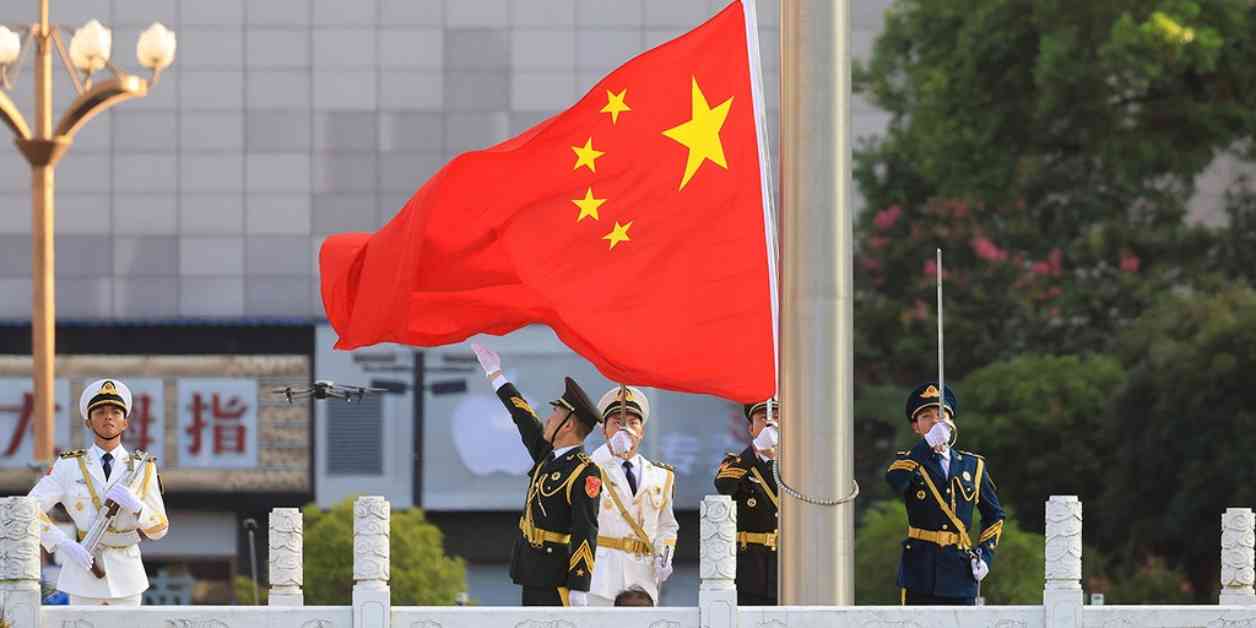China’s Decision to Not Join Global Effort on AI Weapon Development
China made headlines this week by choosing not to sign onto an international “blueprint” agreed to by some 60 nations, including the U.S., that looked to establish guardrails when employing artificial intelligence (AI) for military use. This decision has sparked discussions about the role of AI in military applications and the potential implications of China’s stance on global efforts to regulate the technology.
Understanding China’s Position
More than 90 nations attended the Responsible Artificial Intelligence in the Military Domain (REAIM) summit hosted in South Korea on Monday and Tuesday, though roughly a third of the attendees did not support the nonbinding proposal. AI expert Arthur Herman, senior fellow and director of the Quantum Alliance Initiative with the Hudson Institute, shared insights on China’s decision not to join the global effort.
According to Herman, China’s reluctance to sign onto the international “blueprint” may stem from its general opposition to signing multilateral agreements that it did not help shape or organize. He explained, “China is always wary of any kind of international agreement in which it has not been the architect or involved in creating and organizing how that agreement is going to be shaped and implemented.” Herman added that China perceives such agreements as potential constraints on its ability to leverage AI for military purposes.
The Importance of Human Control in AI Systems
The summit and the blueprint agreed to by some five dozen nations aim to safeguard the expanding technology surrounding AI by ensuring there is always “human control” over the systems in place, particularly in military and defense contexts. Herman emphasized the significance of maintaining human oversight in AI-driven decision-making processes, especially when it comes to matters that involve potential harm to individuals.
“The algorithms that drive defense systems and weapons systems depend a lot on how fast they can go,” Herman noted. “The speed with which AI moves on the battlefield is crucial. If the decision that the AI-driven system is making involves taking a human life, then you want it to be a human being that makes the final call about a decision of that sort.”
Nations leading in AI development, such as the U.S., have underscored the necessity of incorporating a human element in critical battlefield decisions to mitigate risks of erroneous casualties and prevent conflicts driven solely by machine algorithms.
China’s Evolving Stance on AI Governance
China’s decision not to join the global effort on AI weapon development during the REAIM summit raises questions about its evolving approach to AI governance and international cooperation. While Beijing backed a similar “call to action” during the previous summit, this recent development suggests a shift in China’s stance on multilateral agreements regarding AI safeguards.
Chinese Foreign Ministry spokesperson Mao Ning highlighted China’s principles of AI governance and referenced President Xi Jinping’s “Global Initiative for AI Governance” as a comprehensive framework for guiding China’s approach to AI development. Mao emphasized China’s commitment to collaboration with other parties in advancing AI technologies for the betterment of humanity, despite not endorsing the nonbinding blueprint proposed at the REAIM summit.
Implications of China’s Decision on Global AI Development
The decision by China, along with some 30 other countries, not to agree to the building blocks for AI safeguards outlined at the REAIM summit has raised concerns about the potential impact on global AI development. While the U.S. and its allies seek to establish multilateral agreements to regulate AI practices in military applications, the reluctance of adversarial nations like China, Russia, and Iran to adhere to such agreements poses challenges to international efforts to ensure responsible AI use.
AI expert Herman warned that deterrence, rather than reliance on ethical standards, may be the most effective strategy in curbing the development of malign AI technologies by adversarial nations. He explained, “When you’re talking about nuclear proliferation or missile technology, the best restraint is deterrence. You force those who are determined to push ahead with the use of AI by making it clear that if you develop weapons like that, we can use them against you in the same way.”
In conclusion, China’s decision not to join the global effort on AI weapon development underscores the complexities of regulating AI in military contexts and the challenges of fostering international cooperation in this rapidly evolving technological landscape. As discussions continue on the role of AI in national security and defense, the need for transparent and inclusive governance frameworks remains paramount to ensure the responsible and ethical use of AI technologies globally.




